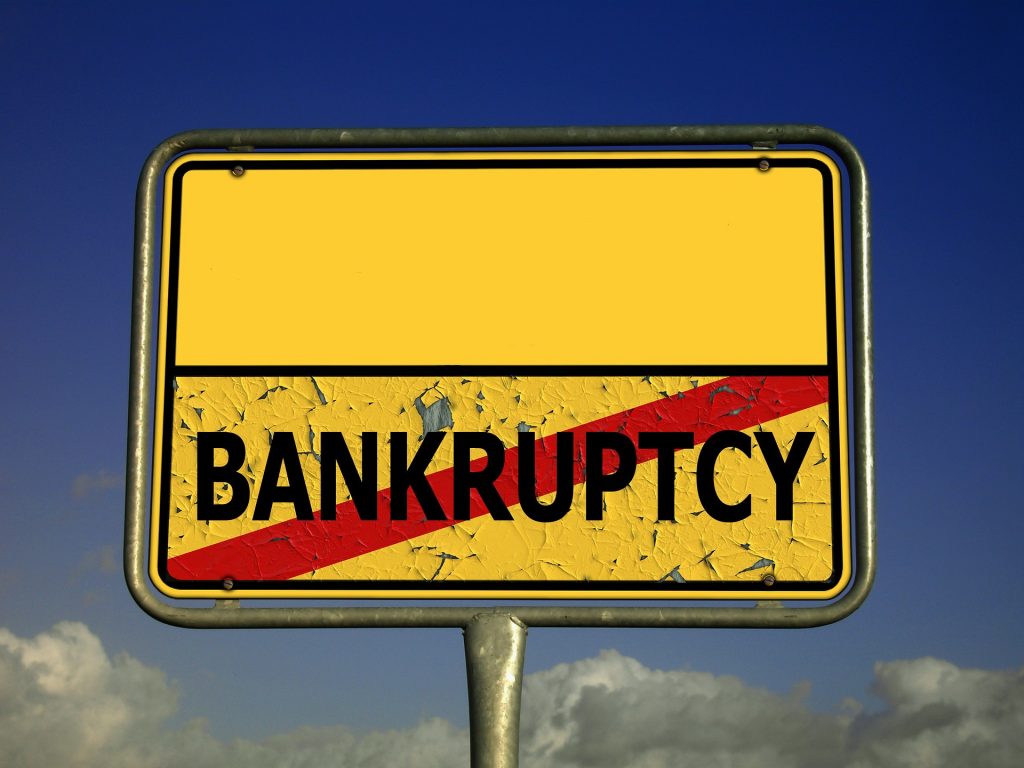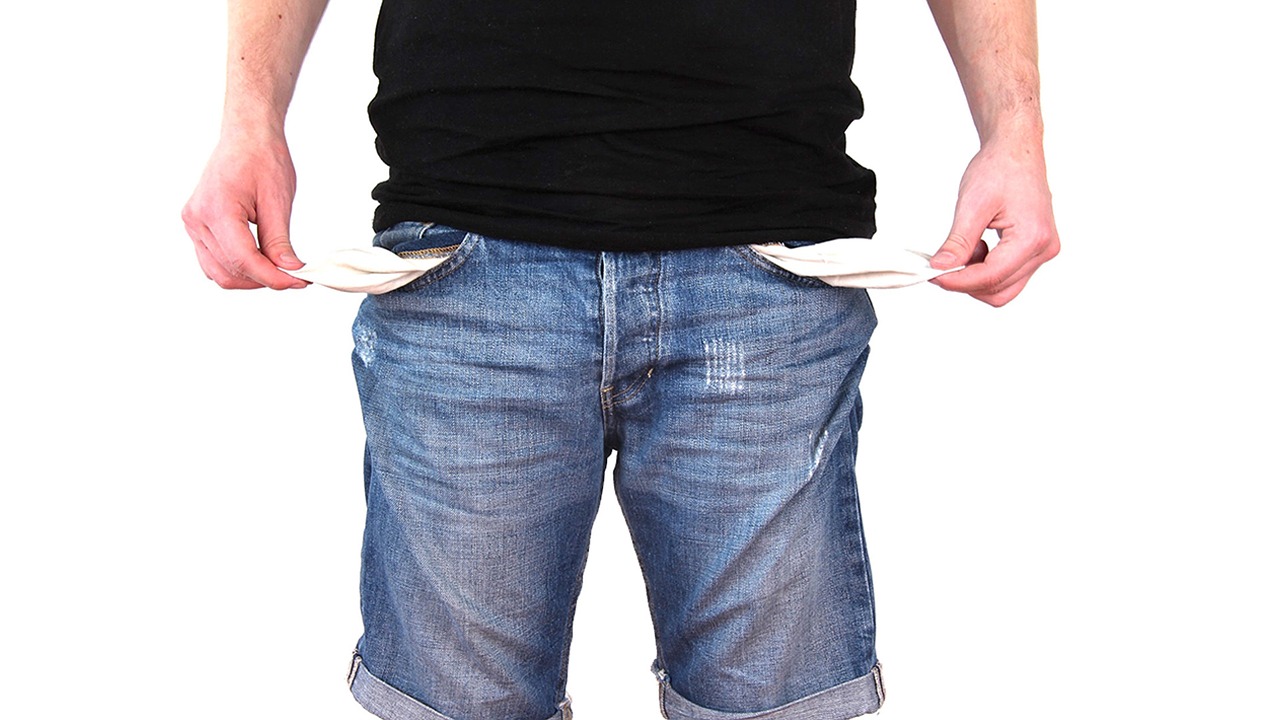Ten Important Facts You Should Know About Bankruptcy.
What Is Bankruptcy?
Bankruptcy defines as a legal procedure administered by the federal bankruptcy courts. The main purpose of this procedure is to assist both individuals and businesses in eliminating some or the entire part of their debt. On the other hand, this procedure also tends to help those individuals or businesses to repay a part of what they have a loan from.
Before we go further about ten facts you should know about bankruptcy, let’s discuss the types of bankruptcy itself.
Types of Bankruptcy.
It’s true that bankruptcy might help you out to get a release from your debt. However, you need to understand that declaring bankruptcy will cause a serious long-term effect on your credit. In fact, bankruptcy will appear for about 7 to 10 years on your credit report. This will surely affect your eligibility to open new credit card accounts and get loan approvals with promising rates.
Additionally, bankruptcy itself can be a complex, overwhelming process to go through. Thus, if you don’t have enough knowledge, then you might not be able to go through the process alone. This is where working along with a bankruptcy attorney can help you out to make sure all the processes and procedures would go smoothly. The main important thing is, this professional would ensure to comply with all the rules and regulations that govern the procedures of bankruptcy.
Moreover, before you would be eligible to file for bankruptcy, you would have to meet certain requirements. You would need to prove that you are really unable to repay your debts and then complete the credit counselling with a government-authorized credit counsellor. This counsellor will assist you to evaluate your financial amounts, discuss the potential alternatives, as well as helping you to create a helpful budget plan.
There are 2 types of bankruptcy you could declare. From both types, you would have to pay all the fees for your own court and attorney. Though, these two types will relieve your debt in different methods.
Chapter 7 Bankruptcy.
This type is also well-known as “straight bankruptcy.” Chapter 7 bankruptcy is what most people prefer when they are filing for bankruptcy.
This type of bankruptcy requires you to allow a federal court representative to oversee the sale of any assets that are not relieved. The money which is collected from the sale will go to your creditors. Meanwhile, once the bankruptcy has been discharged, then the balance of what you owe will be eliminated.
One thing you should note is, this Chapter 7 bankruptcy will not relieve you from some specific debts. Instead, you would still have to pay court-ordered alimony, taxes, child support, and student loans.
This type of bankruptcy gives some significant consequences such as:
- You would potentially lose your property
- The negative bankruptcy information will remain noted on your credit report for ten years after the date of filing
- If you might get into another debt, you would not be eligible to file your bankruptcy under this type for eight years
Chapter 13 Bankruptcy.
This chapter works a little bit different from Chapter 7. Under Chapter 13 bankruptcy, you would still be able to keep your property in interchange for partially or totally repaying your debt. Your attorney and the bankruptcy court would negotiate a repayment plan from three to five years. According to what is negotiated, you might agree to repay some parts or a total of your debt throughout the time duration.
Once you could complete the agreed repayment plan, then the bankruptcy court will discharge your debt, even if you might only be able to repay the amount part that you are initially allocated.
Chapter 13 bankruptcy might be a better option than another type of bankruptcy that will negatively affect your credit report. Since you would repay some parts or total of your debt, you might be eligible to keep some assets. Better yet, after seven years, this chapter will cycle off your credit report and allow you to file bankruptcy under this chapter again at a minimum of two years.
In brief, the differences between Chapter 7 and Chapter 13 bankruptcies are:
| Chapter 7. | Chapter 13. | |
| The type. | Liquidation. | Reorganization. |
| Who is eligible? | Individuals and businesses. | Only individuals. |
| Time for discharge to be released. | Almost 3 to 5 months. | Around 3 to 5 years (on completion of the complete plan payments). |
| Benefits. | Permits you to discharge most debts faster and get a new start. | Allows you to keep your properties while paying your missed mortgage, car, and other non-dischargeable major debt payments. |
| Cons. | Nonexempt properties can be sold by the trustee.That, you would not get any option to catch up on your skipped payments. | You should arrange monthly payments and give them to the trustee for up to 3 to 5 years.Might have to pay back a part of the overall unsecured debts. |
Ten Important Facts about Bankruptcy.
Before you would finally file for bankruptcy, first you need to know what you are getting into. Since bankruptcy is an option for your debt solution, there are some facts you need to consider and be aware of. By understanding these ten facts below, you would get a better understanding of the minuses and pluses of filing for bankruptcy.
1. Filing for bankruptcy will not make you lose everything. In Canada, when you are filing for bankruptcy, most of your personal assets are exempt from seizure. In fact, you would be able to keep some bankruptcy exemptions such as a car, clothing, furniture, life insurance, and your pension. Keep in mind that filing for bankruptcy will not leave you indigent. Instead, filing your bankruptcy can be a step towards recovering financial conditions to help you build and move ahead.
2. You would have to pay monthly. Yes, of course, there will a cost you should pay to file bankruptcy. In order to cover the administrative costs, there will be a minimum payment you need to pay. In addition to this, you might also need to make extra surplus income payments according to your income. Conversely, filing for bankruptcy will be a better choice compared to the struggling process where you are trying to pay all your current monthly debts. In certain cases, you might have to pay the monthly payment with a smaller amount than you are paying currently. This will surely improve your cash flow once all your debts will be totally eliminated.
3. Bankruptcy will not disturb your occupation. Filing bankruptcy will not cause any effect on your employment. Your bankruptcy attorney is devoted not to notify your employer unless you wish to stop a wage garnishment.
4. Bankruptcy will not affect your spouse. Filing for bankruptcy will not affect the credit report or debts of your spouse. In certain cases such as if your spouse has co-signed a loan for you, or you have some debts with both your names, then your spouse will be responsible for these types of debts. However, you could discuss with your trustee about the bankruptcy alternatives that will work for both of you.
5. Filing for bankruptcy will affect your credit report. The first bankruptcy will remain in your credit report for 6 or 7 years after discharge. On the other hand, you would still be eligible to obtain a secured or prepaid credit card at the time you need credit.
6. Bankruptcy will not automatically make you lose your house. When filing for bankruptcy, you would have to explain to your trustee about your house value and a current mortgage statement. Usually, you would still be able to keep your house even if it is worth less than your mortgage payments, as long as you keep your mortgage payments up-to-date. Even though you would not have to pay upfront, but still, you would have to pay the trustee for any equity in your house. For this, you could file a consumer proposal that will enable you to request a 5-year duration to complete your payments.
7. Bankruptcy will stop the creditor to take collection actions. This includes collection calls and wage garnishments. In case your car loan or mortgage is in debt, then those secured creditors cab still hunt you for the payment and might take your car or house. Meanwhile, filing bankruptcy can help you deal with other debts you have and allowing you to catch up with these payments.
8. Bankruptcy can discharge you in a minimum of 9 months. How long your bankruptcy will last is totally depending on your income amount and whether you have filed bankruptcy in previous days. If this will be your first bankruptcy and you are getting below the government’s income limit, then you could get a 9-months discharge. Meanwhile, a second time you would file for bankruptcy with additional income will give you a 36-months of bankruptcy.
9. All your debts will go away right after the discharge. You would have to complete your responsibilities such as:
- Submitting evidence of your monthly income.
- Attending two sessions of credit counselling.
- Completing the required payments.
Once you could complete all your responsibilities, the entire debts included in your bankruptcy file will be discharged.
10. The forms for filing bankruptcy are complicated. Most people think that filing for bankruptcy will be simple and straightforward. Well, unfortunately, the bankruptcy forms are complicated and quite similar to those tax returns forms. You would need to answer some difficult questions about your financial activities. This is where you need to consider hiring a bankruptcy attorney. Having an expert by your side would surely help you prevent consequences that can cost you money, property, or worst, your freedom.
Consequences of Filing for Bankruptcy.
Losing your property might be the most well-known consequence of filing for bankruptcy. As mentioned above, the proceedings for both chapters of bankruptcy might require you to hand over some properties to sale, in order to repay all the creditors.
Some properties that you might have to give up are such as vehicles, jewelry, real estate, antique furniture, and other valuable properties.
Apart from that, your bankruptcy might also affect your beloved ones financially. For instance, if your spouse or maybe your parents co-signed some loans for you, then they will be responsible for some of those debts once you file for bankruptcy.
Can I Get a Credit Card Or Loan After Bankruptcy?
Bankruptcy will, without any doubt, destroy your credit. Bankruptcy that remains on your credit report will surely affect the view of your future lenders. By seeing a piece of bankruptcy information on your credit report, those creditors might prompt in declining to extend your credit. If they would finally decide to give you credit, they might offer you with higher interest rate and less promising terms.
Thus, it is important to start reforming your credit to get a positive score. Make sure you would pay all the bills on time and care not to fall into another debt problem.
Can I Get a Mortgage After Bankruptcy?
Just the same as how bankruptcy might hamper your capability to get unsecured credit, it might also be really difficult for you to get a mortgage as well. After bankruptcy, you would find many lenders who will decline your mortgage submission.
Even if you could find the ones that accept your application, they will offer extremely high fees and interest rates. Worst, they might ask you to provide a bigger down payment or higher closing costs.
So, instead of hand over your house and trying to get a fresh mortgage after your bankruptcy, it will be best to reaffirm your recent mortgage throughout the proceedings of your bankruptcy. In this regard, you would be able to stay in your house while also continue paying your recent mortgage or other debts.
Is Bankruptcy the Right Option for You?
After you learn about the pluses and minuses of filing for bankruptcy, you might come up with a decision that bankruptcy is the right option to deal with your debts. Indeed, bankruptcy might allow you to:
- Eliminate the legitimate obligation that requires you to pay all of your debts. This advantage derives from the discharge you would get once you successfully filing for bankruptcy.
- Stop almost all those creditors from taking any action against you (even if temporarily).
- Catch up with the missed payments of your home mortgages, vehicle loans, or other debts of the property you want to keep.
- Lower the amount of monthly payment on some of your debts such as car loans.
- Enable you to challenge the claims to creditors who have conducted fraud or who are trying to collect a bigger amount than you actually owe.
Other Alternatives to Bankruptcy.
Bankruptcy somehow is not the only alternative to relieve you from huge debts. Instead, there are some other alternatives that you could consider such as mentioned below.
- Get help from a government-authorized credit counsellor. This counsellor will work along with your creditors to assist in arranging a workable plan for you to repay your loans.
- Get a debt consolidation loan. This loan can combine the various high-interest, overpriced debt into a solitary lower-interest loan.
- Negotiate your creditors and make them agree to a more manageable repayment plan for you. Not paying your debt is definitely something that your creditors want you to do. In this regard, they might be willing to work together in arranging and formatting a repayment plan which is easier for you to achieve.
How to Choose a Reputable Bankruptcy Attorney?
Filing for bankruptcy is not a simple task at all. In fact, it is a serious step to go through, a step where you need excellent advice and the appropriate representation. Below are some qualities to look from a reputable bankruptcy attorney who will assist you in every single step.
- They will listen and understand you.
Filing for bankruptcy can be a painful decision for most people. In this case, you surely want your bankruptcy attorney to listen and understand your situation. An excellent attorney should have great empathy and a willingness to address your biggest worries.
- They will discuss some alternative solutions.
A reputable bankruptcy attorney will present you for other available options. He or she would suggest you rethink over again as bankruptcies might not be the only way to deal with your financial concerns. An option such as a formal debt management plan might come up from a qualified bankrupty attorney.
- Find out their expertise and previous cases.
Make sure to find out whether he or she is good at handling their previous bankrupty cases. Don’t forget as well to find out about their expertise and knowledge in bankruptcy law.
Some Practices to Avoid Bankruptcy.
Each time you fail to repay your debt, it will negatively affect your credit report. Hence, before you come up with any decision about debt relief such as filing for bankruptcies , you need to research your options and understand the impact that can be made to your overall financial well-being.
Instead of choosing a debt relief, you could eventually start taking care of your credit better. This can be done by practicing:
- Make sure to pay all your bills on time.
- Try to avoid taking on extra debt that you can’t handle.
- Always maintain and monitor your credit report.
- Create and implement a strict personal budget.
- Prefer using credit in small ways such as using a secured credit card, and always pay the balances in full amount, straightaway.
Wrapping Up.
If you would finally decide to file for bankruptcy, make sure to use it to your advantage and remember not to fall back into your old habits. This can simply be done by learning how to create a personal budget, avoid debt, and control your money so that you don’t end up back where you started.
FAQ
1. Q: What takes place if I announce bankruptcy in Canada?
A: Once you file for bankrupty, you surrender properties in return for the release of your debts. Fair as there are some bankruptcy exceptions which mean that you don’t drop all your properties, there are also some exclusions to the release of all your debts. These creditors are preserved differently in a bankruptcy situation.
The idea ahead a personal bankruptcies in Canada is comparatively simple. Mutually are pretentious when debts are protected by assets, as trendy a mortgage.
2. Q: What is the cost of declaring bankruptcy in Canada?
A: The lowest cost to a case for bankruptcy in Canada is $1,800 for a primary time bankruptcy. And billed in 9 once-a-month installments of $200. You are mandatory to make this lowest contribution to cover administrative prices such as government fees, the bankruptcy executor’s time, mailing, etc.
You might be amazed to learn that it charges money to the right bankruptcy in Canada. The charge of bankruptcy varies for each individual as it is founded on a once-a-month income, expenses, family size, and properties. Devoid of knowing the particulars of an individual state, we can’t give the exact charges. Though, we can walk you over all the thoughts that an Ontario bankruptcy representative will talk about once defining what bankruptcy will charge.
3. Q: How lengthy bankruptcy proceeding in Canada?
A: Nine months.
Below the Canadian bankruptcy rule, the first bankruptcy continues for a minimum of nine months. A second bankruptcy continues for the lowest of 24 months. If you consume surplus revenue, a second-time bankruptcy will spread for 36 months.
A first bankruptcies seems on your credit report for the lowest of six years from the date of release. The current repetition of Equifax, the main credit bureau in Canada, is to report an additional bankruptcies on your credit account for 14 years.
4. Q: Will I drop my house if I case bankruptcy in Canada?
A: You concern that you might lose your home. You can case this even if there is evenhandedness in your home. If you are insolvent, you are qualified to file for this or a proposal in Canada. With up-to-date mortgage payments filing for bankruptcy does not mean you will routinely lose your house.
Around 1 in 4 people who marched this with Hoyes, Michalos private a house. In all belongings, we can demonstrate to you how to save your house, even if you choose to claim this.
There are choices to keep your home in this process but the best method depends on the charge of the house, the amount outstanding on the mortgage, and your domestic budget.
5. Q: What is the disadvantage to splinter bankruptcy?
A: Splinter Bankruptcy: Cons
The primary disadvantage of filing for bankruptcy is that notwithstanding helping you out of debt, it will not remove all your debts. The subsequent are some of the debts that will continue after filing for that. Your latest back taxes. Maximum student loans.
In accumulation, though you do get to retain your exempt belongings when filing for Chapter 7, you do drop your non-exempt assets. Contingent on your financial conditions, this could comprise your house, cars, cash, stocks, and bonds.
6. Q: Make sure of debt go left after 7 years in Canada?
A: Once your debt evaporates from your credit record.
Debt does ultimately disappear from your credit record, in most circumstances. Equifax and TransUnion only save a record of aberrant amounts for six to seven years from the former payment or evasion date, rendering to CreditCards.com Canada.
The urban tale that debt perishes after a few years is entrenched in a kernel of fact. There is such an object as a decree of boundaries on debt, and old debts do commonly drop off your credit history.
Quiet, debt doesn’t really ever vanish. If you have due liabilities, you’ll endure to owe money for the breather of your lifetime — and sometimes elsewhere that.
7. Q: How several times can you announce bankruptcy in Canada?
A: Officially speaking, a person can case for bankruptcies as several times as they need. However, the procedure becomes more obstructive. With an additional process, you will not be suitable for an involuntary process release in nine months.
Stating that is the next resort and the procedure isn’t usually recurrent. However, in rare conditions, you may find yourself stating that for a second time. You can case for a second process only after you have been settled from your earlier system.
8. Q: What time should I case a bankruptcy?
A: If you’re overcome by your debts, bankruptcy is just one choice. If you have huge debts that you can’t pay, are behindhand in your mortgage expenditures and in hazard of foreclosure, are being stressed by bill gatherers, or all of the above, announcing that potency is your response.
This system can, in approximate cases, decrease or remove your debts, save your home and retain those bill gatherers at bay, but it also has thoughtful consequences, counting long-term injury to your credit score. That, in opportunity, can pannier your aptitude to borrow in the imminent, increase the rates you wage for insurance, and even make it problematic to get a work.
9. Q: Do entirely bankruptcies get accepted?
A: Take the result to go bankrupt
Your request will have to be accepted by the Indebtedness Service’s Judge. If you have taken debt guidance and been expressed that is a good possibility for you, then you can have the self-confidence that it will be accepted.
These timeline demonstrations WHAT is likely to occur and WHEN if you go bankrupt in England, Wales or Northern Ireland. Some of the eras are fixed, the system indicator is definitely going to droplet off your credit file afterward for six years. Others are less certain, but the signs in the timeline here should be correct for a large mainstream of the people who go to that.
10. Q: Do bankruptcies decrease off credit?
A: How Lengthy Does Bankruptcies Visit on the Credit Report? This community record is erased from the credit report moreover seven years or 10 years from the particle date of that, contingent on the chapter you marched. Chapter 7 is removed 10 years from the particle data because no one of the debt is paid.
Specific accounts comprised in both Chapter 7 and Chapter 13 can continue on the credit report for seven years.
Generally, a person stating that already is having thoughtful trouble paying their debts. Accounts are often extremely delinquent beforehand that.
11. Q: What occurs to a mortgage in bankruptcy?
A: Your unsettled mortgage does not inscribe off if you go Bankrupt. This is since only indiscreet debt includes in the procedure. Mortgage debt protects against your assets. If it is not remunerated the lender eventually has the right to expel you and sell the assets to recover the money they are payable.
Assumed this if you want to continue in your assets you must safeguard that you save up with the decided monthly payments afterward you go Bankrupt.
Your mortgage lender will be conversant that you have absent bankrupt. Though, they will not have a matter as long as you preserve your payments.
12. Q: Is it improved to file bankruptcy?
A: Though, filing for bankruptcies can recover your cash movement by eliminating your essential to make payments on your credit card debt and other indiscreet debts. This can mark it relaxed to keep up with your mortgage and car loan expenditures. If you have been bankrupt beforehand, a second-time of that receipts longer and charges more.
This is a lawful means by which you can remove your debt. The impartial is to let someone who is insolvent to remove their debts and advance a fresh start. In the conversation for this advantage, you make payments, for an era of time as define thru this rule, and give up any properties you own that are not excuses thru provincial and federal lawmaking.
13. Q: How does announce bankruptcy mark you?
A: It measures negative info on your credit report, and can mark how upcoming lenders view you. Keen-sighted of this on your credit file might prompt creditors to failure extending you credit or to the proposal you higher interest rates and fewer favourable terms if they do choose to give you credit.
This might help you get respite from your debt, but it’s significant to understand that statement that has a thoughtful, long-term result on your credit. This will continue on your credit report for 7-10 years. Upsetting your ability to open credit card accounts. And accept for loans with satisfactory rates.
14 Q: Are bankruptcies up and around in Canada?
A: TORONTO. The newest data demonstrates that Canadians are particle the maximum number of personal insolvencies in a period. Canadian consumers marched 13,200of this and offer in October, a 13 percent barrier compared to the similar month last year, rendering to the Office of the Supervisor of this.
Insolvencies can take the form of bankruptcies or offers, an offer to creditors to pay back a quota of the debt payable, spread the payment limit or both.
All Canadian provinces proverb the number of customer insolvencies rise year-on-year in October. The Northwest Territories, Yukon and Nunavut saw reductions.
15. Q: How frequently do bankruptcies getting unuse of?
A: Incidence of Rejection.
Though some Chapter 7 this circumstance hit out of court before release. Figures indicate that this isn’t the standard. Rendering to the U.S. Courts website, once Chapter 7 circumstance properly fill-up. The consequence in a successful release of debts more than 99 percent of the period.
Rejection of release after a Chapter 7 case starts is usually due to a lack of morality. This is on the part of the borrower. Though you might want to retain some financial confidences. Once you case Chapter 7, the court needs that you are unadorned your financial soul if you want a release.






After a very bad year financially, one of my friends needs to file for bankruptcy. I’ll let him know that a Chapter 13 bankruptcy can give him the option to create a repayment plan with the help of an attorney. Maybe it would be best for him to research bankruptcy attorney services online to figure out which option will be best for his situation.